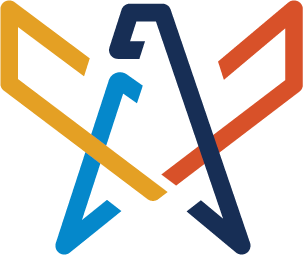Teacher Feature: November 2024
Dr. Laurie Sullivan
Project Discovery STEM Teacher
Barrett Elementary School
Arlington Public Schools, Virginia
Dr. Sullivan is a member of the ACCESS Lending Library Program!
Dr. Sullivan @LSullivan is the Project Discovery STEM teacher at K.W. Barrett Elementary School in Arlington, VA. She was the 2004 Virginia Teacher of the Year and is a current Virginia Finalist for the Presidential Award for Excellence in Mathematics and Science Teaching (PAEMST). Dr. Sullivan is featured in the U.S. Department of State article and video “5 Astronauts and a Teacher You Need to Know” for her work with girls in STEM. In 2015, Sullivan was selected as Arlington Public Schools Air Force Association's Aerospace Education Teacher of the Year. Sullivan was awarded an NSTA Toyota grant and as part of that project was featured in the U.S Fish & Wildlife Service Special Report Bringing Education to Diverse Audiences. Sullivan’s collaboration with volunteer engineers and scientists is highlighted in the Arlington Public Schools video APS Primary Science in action.
1. Tell us a little bit about Project Discovery at your school. What is it and what makes it unique in Arlington Public Schools?
Project Discovery is an Exemplary Project funded by Arlington Public Schools. In the 1990s, Title 1 schools were invited to submit proposals and the Barrett staff created Project Discovery, an interdisciplinary program weaving together science, mathematics and language arts. Over the years the program has evolved to meet the changing needs of the school with the goal:
to increase student achievement by providing students with highly engaging science and engineering learning experiences that spark curiosity and excitement!
The program is inclusive, with every PreK - 5th grade student including the Multi-Intervention Program for Students with Autism (MIPA) and Functional Life Skills (FLS) classes participating weekly in Project Discovery. Project Discovery emphasizes the Engineering Design Process as a means of increasing students’ awareness of how scientists and engineers use knowledge of math, science, and creativity to solve problems.
2. We also saw that you work in a NASA Explorer School; could you explain what that means for you and your students?
We feel very special to have been selected as the first elementary school in Virginia to become a NASA Explorer School! Barrett began implementing the NASA Explorer School (NES) program K – 5 in 2005 – 2006. The NES program provided funds for Barrett teachers to attend Mathematics, Science & Technology conferences as well as purchase instructional technology. Students benefit from hands-on lessons, intriguing videos and meeting astronauts, engineers and other NASA personnel in person and virtually. Some highlights include the Lunar Plant Chamber Design Challenge, the Liquid Waste Recycling Design Challenge, the Optimus Prime Spinoff Challenge and the Spaced Out Sports Challenge, focused on Newton’s Laws of Motion. As a result of earning top honors in these challenges, students presented their research in person at Kennedy Space Center and Goddard Space Flight Center and even had a project implemented on the International Space Station! In addition, students designed experiments that their teachers carried out in reduced gravity on the “vomit comet” aircraft. Teachers attended robotics training at JPL and started an after school robotics program. Although there is no longer funding to become an official NES, all schools are invited to use NASA’s online resources to inspire the next generation of scientists, mathematicians, engineers, and explorers!
3. What are some of your memorable teaching experiences as a Project Discovery teacher?
There have been so many memorable experiences over my 32 years teaching at Barrett. It is a truly special community. I appreciate the support from parents, co-teachers, my administrators, NASA, the U.S. Fish and Wildlife Service, Lockheed Martin, Amazon, Google and the Smithsonian to bring exciting opportunities for me and my students. Some memories that stand out are when Astronaut Dr. Roger Crouch and a team from NASA Stennis Center set up experiments & activities at Barrett for the students to visit throughout the day. Imagine building a rocket with an astronaut! Another outstanding event was when Astronaut Leland Melvin inspired students and their families at one of Barrett’s STEM Nights. I was thrilled when I was invited to take students to the White House Astronomy Night where students met astronauts Buzz Aldrin, Sally Ride and sat next to President Obama and his family in the inflatable planetarium on the lawn. A more recent memory is when one of my students was one of nine finalists out of 28,000 entries in the Name the Mars 2020 Rover contest and his essay was engraved on the Perseverance rover now roving Mars.
4. What is your favorite part about your job?
I love the creativity of designing lessons that apply the Virginia Standards of Learning in unique ways that bring a joy of learning to my students. It warms my heart to hear students say, “I love Project Discovery”, often accompanied by a smile or a hug. I appreciate collaborating with volunteer scientists and engineers and participating in new learning experiences such as the AFOSR ACCESS cohort. Currently my students are using Ozobots on loan from ACCESS to code the robot “bird” actions to emphasize the hazards and benefits local birds face on their migration from Arlington to our partner school in Panama.
Thank you so much, Dr. Sullivan!


